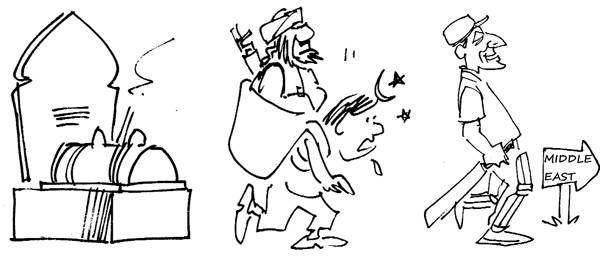
A judicial murder
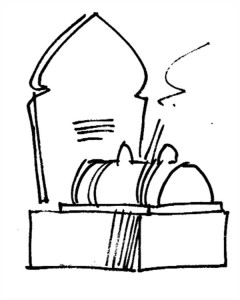
Sir,
April 4 is the day when Pakistan’s popular leader Zulfikar Ali Bhutto was hanged.
Bhutto rose to the power corridors from the deserts of Sindh, and after resigning from the cabinet of Ayub Khan as foreign minister, formed his own political party – the Pakistan People’s Party. Due to his charismatic personality, he won the heart of millions of his countrymen and got a majority in the 1970 general elections in the Western Wing of the country. After the unfortunate fall of the Eastern Wing, he became the president and chief martial law administrator on December 20, 1971, aiming to “pick up the pieces, very small pieces”.
He was a popular leader, but his government was toppled on July 5, 1977 by the then army chief General Ziaul Haque, and finally on September 3, 1977, Bhutto was arrested on the charges of ordering the murder of Nawab Muhammad Khan, father of his political opponent Ahmed Raza Kasuri, by the by the Federal Security Force on November 11, 1974.
The trial started in the Lahore High court on October 11, 1977, before the full bench of five judges. It was the start of one of the most controversial trials in the judicial history of the world.
The verdict of the Lahore High Court was announced on March 18, 1978, with all the accused being found guilty and sentenced to death with the remarks in the judgment that Bhutto was a “compulsive liar”. The words were deleted after a Supreme Court order.
The former Attorney General of the United States Ramsay Clark is of the opinion that “the chief justice’s prejudice against Bhutto spread throughout the 145 page decision”.
“A Muslim can only prostrate himself before his creator,” Bhutto had said. “But the bench particular the chief justice was always rude, abrasive, and insulting to me. In contrast, the Chief Justice was kindness itself to the confessing co-accused. He smiled at them. He enjoyed their rustic sense of humor at any expense. The taunts the frowns and the shouts were reserved only for me. I was favored with comments to ‘shut up’, ‘get up’, and ‘take this man until he regains his senses’. In these circumstances to talk of co-operation is to ask for the patience of a saint.”
An appeal was filed in the Supreme Court of Pakistan on March 25, 1978, to be heard before a full bench of nine judges, which included Chief Justice Anwarul Haque, who had publicly referred to General Zia as “a national Savior”.
The judgment was delivered on February 6, 1979, with four judges including the chief justice upholding the Lahore High Court decision and three judges against it. In the words of Stanley Wolpert, “Chief Justice Anwarul Haque took more than eight hundred pages of foolscap to write the casting vote decision that sent Zulfikar Ali Bhutto to his death”.
That was the end of an undisputed leader of the third world, a man who gave this nation and the people the gift of a unanimously adopted constitution, who brought all the Muslim countries at one platform and who wanted to “make a new Pakistan, a prosperous and progressive Pakistan, a Pakistan free of exploitation, a Pakistan envisaged by the Quaid-e-Azam”.
TW Rajaratnam, a former judge of the Supreme Appellate Court of Sri Lanka, wrote in his book A Judiciary in Crises?: “Ultimately, it is the judiciary and the judicial system alone that has to take the full responsibility for Bhutto’s conviction and execution. The question whether their judgments were right or wrong remains for the people to answer. Of course the only answer to the question whether Bhutto had a fair trial has to be an emphatic no.”
I request through these lines to the print and electronic media to publish and telecast special features highlighting the trial of Bhutto to bring the facts before the present generation that has been brainwashed with the false propaganda by the enemies of the poor of this country.
Aamir Aqil,
Lahore.
Burden and benefit
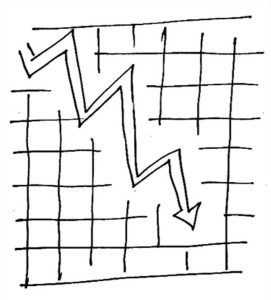
Sir,
It is heartening that the media is pressuring the government of Pakistan that its major source of income should be tax on income of the rich.
A positive response was shown by the government in the form of publishing a directory which highlighted the issue of taxation and representation. While tax policy and its implementation is being debated it is necessary that due attention is given to fundamental tax administration reforms. According to renowned tax expert Norman Nowak, first director of the Institute for Tax Administration, Los Angeles, an effective tax system can be developed by an effective administrative structure and “its productivity is dependent on the professional skill and stature of the tax administrator and upon the political and social climate in which he works.”
Proposals for reforms are as follows. Firstly, the Revenue Division should be headed by an officer of a federal tax service. Secondly, the head of the Revenue Division should not hold any additional post. Thirdly, there should be two main departments for internal and external taxes. Fourthly, these departments should be headed by officers from respective federal tax services. Fifthly, there should be a board for coordination between the Revenue Division and its departments with designation of the Federal Board of Revenue.
At present, the head of Revenue Division is not a professional officer and he is also head of the joint federal department of revenue, wrongly designated as the Federal Board of Revenue. It is a farcical structure of three bodies and one head. Measures for decentralization of the Higher Tax Organization and its professional management have been proposed as there are separate service groups and layers of subordinate offices for distinct fields of internal and external taxes.
These reforms are in the interest of good administration as two departmental headquarters with professional heads would be able to play pivotal roles of advising the Revenue Division and supervising its implementation by subordinate offices. These reforms are likely to be opposed by elements in the bureaucracy. Since long they have been utilizing large sums of foreign aid for Tax Administration Reform Program without undertaking crucial measures. Their machinations to mislead political leaders should be counted by the media and other pressure groups. Campaign for this objective would enhance capability of the government to sort out those who do not have the will to pay tax according to their ability.
Taraq Jazy,
Islamabad.
Persecution in Africa
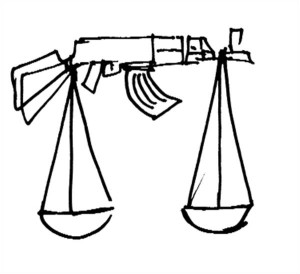
Sir,
The Central African Republic, which has a population of 4,422,000 (according to the 2009 census) consists of 80% Christians and 15% Muslims. The republic has been in a state of conflict since 2012. In 2014, Christian group called ‘Anti-Balaka’ committed several massacres against Muslim civilians aiming ethnic cleansing of Muslims in CAR.
According to the United Nations, the hatred between Christians and Muslims has reached to a ‘terrifying level’. Women and Children are being killed openly. According to World Bulletin, Muslim women are being enslaved by the Christians Milita. Washington Post reports that Muslims are living in a state of constant fear and are starving to death. Children as young as 3 and 4 years old have died of hunger. This situation has forced Muslims to flee from the country and entire Muslim communities have disappeared. The CAR capital has seen its Muslim population drop from 130,000 to 1,000 over the past few months. According to the United Nations, Entire Western half of country has been cleansed of Muslims.
Despite this horrifying situation, the Muslim media remains silent on this issue. Only a few newspapers have seldom reported about the heinous crimes committed against CAR Muslims. I condemn the silence of Muslim media on the brutality against our brothers and sisters living as a minority in CAR. I strongly recommend Muslim media, including newspapers, TV channels, magazines and bloggers to cover this issue and raise voices against the cruel persecution.
Mahwish Azhar,
Lahore.
Turbulence
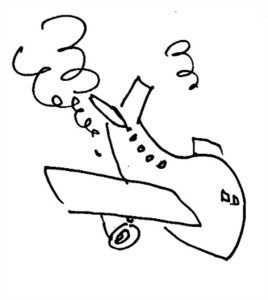
Sir,
Weeks after the disappearance of MH 370 B-777 jet carrying 239 passengers, its debris is yet to be located. The unfortunate reality is that Civil Aviation Regulatory authorities in most southeast Asian countries have been reduced to welfare organizations catering to provide jobs for retired armed forces officers, civil bureaucrats and unqualified personnel, who have never worked in commercial civil aviation, nor have any specialized qualifications in accident investigation, neither any ratings on aircraft flown by airline operators under their regulatory control.
As if this was not bad enough, Civil Aviation regulatory authorities run and own airports, air traffic control, radar control and provide navigation and radar control aids needed for safely conducting air traffic within their airspace. Although Civil Aviation regulatory bodies have no dearth of revenues generated from taxes levied on passengers, over flying traffic navigation services, landing fees, licensing and AOC etc, they continue to rely on taking on deputation experienced pilots, technicians etc on the payroll of airlines that they are supposed to regulate. This regulation stands compromised because of conflict of interests.
Apart from undue control of armed forces aviation services, which in reality have nothing in common with commercial aviation, the latter being a highly regulated industry, undue political interference and politicized appointments in regulatory body has drastically dented their necessary requirement of complete independence from airline operators and political or defense services interference.
In the specific case of MH 370, the Malaysian and Vietnam Radar Controller and their respective military surveillance radars failed to detect its deviation from assigned flight path as per filed flight plan. It also points to weakness in MAS Flight Operations Central Control, especially the role of qualified Flight Dispatcher and Flight Operations department. Had surveillance radars and loss of radio contact been responded to by dispatching military aircraft, what happened on board ill-fated aircraft could have been identified and the site of its crash located.
It is time that governments in subcontinent and rest of southeast Asia stop appointing cronies to head national airlines and state regulatory body. The rapid technological advances in aviation demand an upgrading of qualifications for employment of pilots, engineers, and mechanics, along with hiring best qualified top management, instead of mediocrity that dominates airlines like PIA, Air India etc. There should be zero tolerance for indiscipline by airline crew and managers implicated in financial indiscipline, both for state owned airline operators and regulatory body.
Gull Zee,
Islamabad.
Sticky wicket
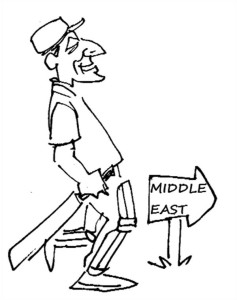
Sir,
Pakistan has such amazing talent in Cricket and the people of this nation love watching the sports. But unfortunately, the full potential of this talent has not been utilized, because of the limited availability of cricket playing events. The bad security situation in the country has halted all international cricket matches in the country, while the shameful exclusion of Pakistani cricket players from the IPL has only left our nation’s talent with the ICC and UK County matches. And with the takeover of the ICC by India, UK and Australia, things might get worse.
The new government of Prime Minister Nawaz Sharif, a cricket lover himself, can help save cricket in Pakistan. It should start new international cricket competitions that are played in the Middle East, but managed by Pakistani cricket board. Such an event will help utilize the many sports stadiums in the Middle East, while generating tourists for the hosting nations.
While Pakistanis will enjoy a yearly sports event, the government will generate revenue and our nation’s cricket talent pool will have new places to show their talent and earn for their families.
Similarly a Middle East Cricket League (MECL) can also be launched, where teams managed by Middle East based companies could hire the best cricket talent from Pakistan to play in local matches.
Why should our country wait for the ICC or other sporting events? We are the 6th most populous nation in the world. We can create and manage hundreds of teams and still have people to watch these teams play one another.
Zeeshan Baseer Khan,
Peshawar.
Liberty and freedom
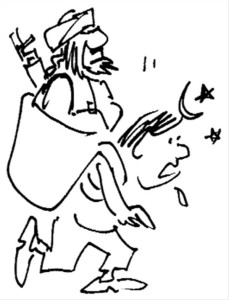
Sir,
When Muhammad Ali Jinnah told Pakistanis on August 11, 1947 that they were “free to go to your temples… mosques or to any other place or worship in this State of Pakistan”, he was not just talking about the practical freedom of being able to go to a temple or a mosque, but also about the more abstract principle of “freedom of religion”, which includes the right to express oneself freely on any topic touching religion, and to teach and proselytize freely. I’ll warrant he meant the US Bill of Rights’ first amendment clause of religious freedom.
As for his comment, “You may belong to any religion, caste or creed – that has nothing to do with the business of the State”, the clear implication is that Jinnah favored a divide between the mosque and the State, duplicating the US First Amendment “establishment clause”. The establishment clause has generally been interpreted to prohibit 1) the establishment of a national religion by Congress, or 2) the preference by the US government of one religion over another.
As for equality of citizenship with all attendant rights and privileges, he was speaking about the Equal Protection of the Law principle found in the American Constitution’s 5th (case law) and 14th amendments.
Apropos Syed Sharifuddin Pirzada’s letter in Dawn newspaper, titled Ideology of Pakistan, (March 21, 2014), I can say that Jinnah wanted to unite the Muslim League under a so-called Islamic ideology, so that the League’s vote bank and unity among Muslims would be secure. Barrister Jinnah stated in his August 11, 1947 speech that “you will find that in the course of time Hindus would cease to be Hindus and Muslims cease to be Muslims, not in the religious sense because that is the personal faith of each individual, but in the political sense as citizens of the State”.
Jinnah’s thinking had clearly evolved, he went from, “let me say that the ideology of this League is based on fundamental principles that Muslims of India are an independent nationality and any attempt to get them to merge their national and political identity and unity will not only be resisted but in my opinion it will be futile for anyone to attempt it” (June 19, 1945 Dawn) to the preceding paragraph.
Once the State had almost come into being and a Constitution was to be drafted, Jinnah clearly stated his view that there would be no difference between any religious community living in Pakistan. In time their religious and political differences would merge into a single citizenship. There would be no independent nationalities or national and political identity in Pakistan, as everyone would be equal before the law.
In the pre-partition British India, Jinnah did not expound such a view. Why? Because while Jinnah wanted a secular Pakistan, he did not want the pseudo-legal theocracy of the kind Syed Sharifuddin Pirzada has done his part to create.
Jinnah needed populist Islam to rally the faithful in British India around the Muslim league banner. I am referring to the legitimacy of the 1973 Constitution with all its warts that the fundo loving Nawaz Sharif government is getting ready to “implement” as per Maulana Samiul Haq, which will finally Talibanize Pakistan. As it stands, the problem of terrorism has its roots in the legitimacy the 1973 Constitution gives to State Islam. It is a complete betrayal of Jinnah’s ideal Pakistan. The entanglement of the State with religion has led to religious bigotry enshrined in law, and religious wars in Pakistan.
This country is facing a truly awful existential fanaticism nursed by the likes of Syed Sharifuddin Pirzada, Nawaz Sharif and Imran Khan. They are on the side of Taliban, the enemies of freedom and liberty.
I’m a lover of liberty and freedom. That is the real ideology of Pakistan and Jinnah.
C Omar Mirza,
New York.

